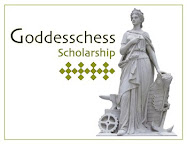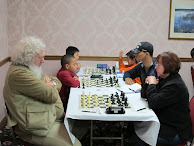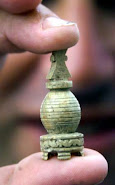*********************************************
"China's first and most influential history book, the Historical Records, stated clearly that Emperor Qin Shihuang (259 BC-210 BC) strictly banned Buddhism and Buddhist temples," said Han Wei, a noted researcher with Shaanxi Provincial Institute of Archeology.
Er, well, guess that goes to show the extent of my lack of education about the spread of Buddhism into China. I thought it had long since spread into the entire area now known as China long before the "First Emperor" (of the so-called united China) took power. That Emperor Qin Shihuang thought the threat of Buddhism was so grave that he banned the practice of its tenets in his empire would seem to demonstrate that it was already well established in China by the time he seized control. Otherwise, why bother banning it?
Sunday, May 24, 2009
China's "First Emperor" Banned Buddhism
Article from China View :
China Exclusive: China's "first emperor" banned Buddhism, expert says
www.chinaview.cn 2009-05-11 19:00:38
XI'AN, May 11 (Xinhua) -- The first emperor of a united China could go down in history not only for the Great Wall or the terra cotta army of guards and horses, but also for his attempt to crush Buddhism that had apparently become prevalent in his days, according to a researcher on Monday.
"China's first and most influential history book, the Historical Records, stated clearly that Emperor Qin Shihuang (259 BC-210 BC) strictly banned Buddhism and Buddhist temples," said Han Wei, a noted researcher with Shaanxi Provincial Institute of Archeology.
According to the Historical Records, the ban went alongside the emperor's major military strategies including the deportation of the invading Huns, and applied far beyond the ancient capital Xianyang in today's Xi'an to cover the whole country.
Though the book, written between 104 B.C. to 91 B.C., provided no evidence of temples destroyed or monks exiled, Han said he believed the ban had been very effective.
"Buddhism never appeared again in historical documents until 2 B.C.," Han said.
Emperor Qin Shihuang's ban on Buddhism indicated the religion was already popular in China's interior regions in his reign, said Han, whose thesis on the subject was published Friday in Xi'an. Han recommended that textbooks be changed to reflect his discovery.
Historians generally believed Buddhism was introduced into China around 67 A.D. in Han Dynasty that succeeded Qin. But Han held it must have spread to China from today's Xinjiang Ugyur Autonomous Region and central Asian countries, along the ancient Silk Road, more than two centuries earlier.
Noted Silk Road archaeologist Wang Jianxin said Han's research finding, based on linguistic, historical as well as archeological studies, sounded "reasonable".
"Another scholar raised the same hypothesis in the early 1900s,but couldn't provide sufficient evidence." Wang said.
Han was one of the experts who helped locate and excavate a finger bone believed to belong to Sakyamuni, the founder of Buddhism.
The sarira, or Buddhist relic, had been kept in the underground sanctum of Famen Temple in the suburbs of Xi'an since 874 before it was taken out in 1987.
Editor: Chris
Subscribe to:
Post Comments (Atom)



































No comments:
Post a Comment